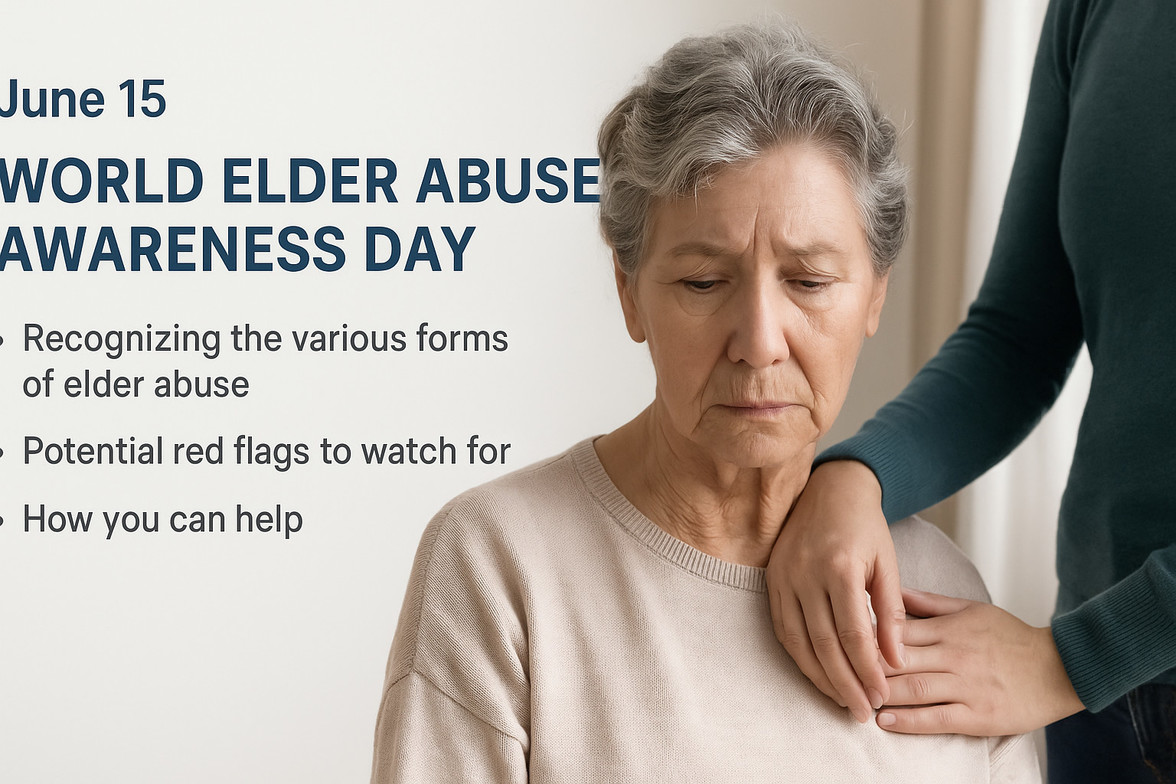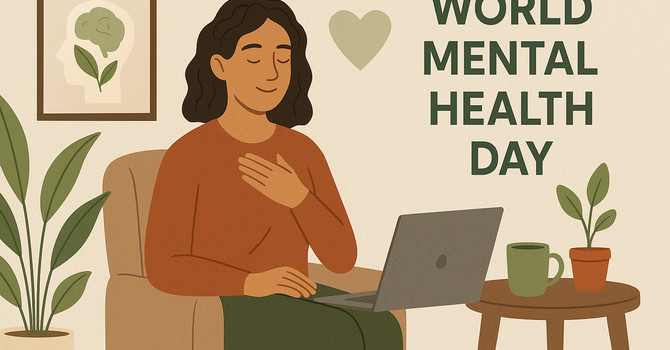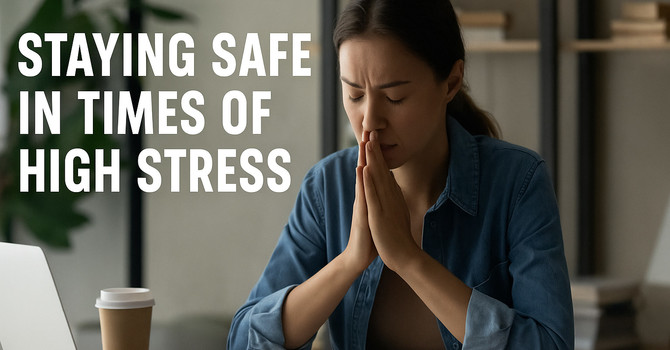
Each year on June 15, communities around the world observe World Elder Abuse Awareness Day (WEAAD)—a critical opportunity to raise awareness about the mistreatment of older adults and promote the dignity and safety they deserve. As Canada’s population continues to age, ensuring the protection and well-being of our elders is more important than ever.
What Is Elder Abuse?
Elder abuse refers to any action—or lack of action—that causes harm or distress to an older adult, often by someone they trust. It is a violation of human rights and a significant public health concern. Abuse can happen in homes, hospitals, care facilities, and public spaces. It knows no cultural, economic, or social boundaries.
Forms of Elder Abuse
Understanding the different types of elder abuse is essential for identifying it:
-
Physical Abuse
The use of physical force causing pain, injury, or impairment. This includes hitting, pushing, or inappropriate restraint. -
Emotional or Psychological Abuse
Verbal assaults, threats, humiliation, or isolation that cause emotional pain or distress. -
Financial or Material Abuse
Illegal or improper use of an elder's funds, property, or assets. Examples include theft, fraud, misuse of power of attorney, or coercion to sign documents. -
Neglect
The failure to meet an elder’s basic needs, such as food, shelter, healthcare, or hygiene. It can be intentional or due to lack of awareness or resources. -
Sexual Abuse
Any sexual contact without consent, including unwanted touching or coercion. -
Institutional Abuse
Poor care or neglect in long-term care facilities or other institutional settings, often due to understaffing, inadequate training, or lack of accountability.
Potential Red Flags
Recognizing the signs of elder abuse can help prevent ongoing harm. Look for:
-
Unexplained injuries, bruises, burns, or fractures
-
Sudden changes in behaviour or mood (withdrawal, anxiety, depression)
-
Unusual banking activity or sudden financial hardship
-
Poor hygiene, malnutrition, or untreated medical conditions
-
Reluctance to speak in the presence of a caregiver
-
Signs of overmedication or sedation
-
Unusual isolation from family or friends
How You Can Help
Elder abuse is often hidden. Many victims are afraid or unable to speak out. Here’s how you can make a difference:
-
Listen and Watch: Take the time to check in on older adults in your community or family. Listen without judgment if they share concerns.
-
Report Concerns: In Alberta, you can contact the Protection for Persons in Care office (1-888-357-9339) or the Alberta Elder Abuse Awareness Council for support. In emergencies, always call 911.
-
Educate Others: Share information about elder abuse and its signs. Awareness is the first step to prevention.
-
Support Caregivers: Many caregivers are overwhelmed. Offer support or help connect them with respite services.
-
Advocate for Change: Promote policies and practices that prioritize elder safety, respect, and dignity—whether in workplaces, care homes, or your local community.
Creating Safe, Respectful Communities
Respecting our elders means more than words—it means creating communities where they are valued, protected, and heard. At RRSC, we recognize that psychological health, safety, and dignity matter at every stage of life. This World Elder Abuse Awareness Day, let’s recommit to compassion, connection, and collective care.





